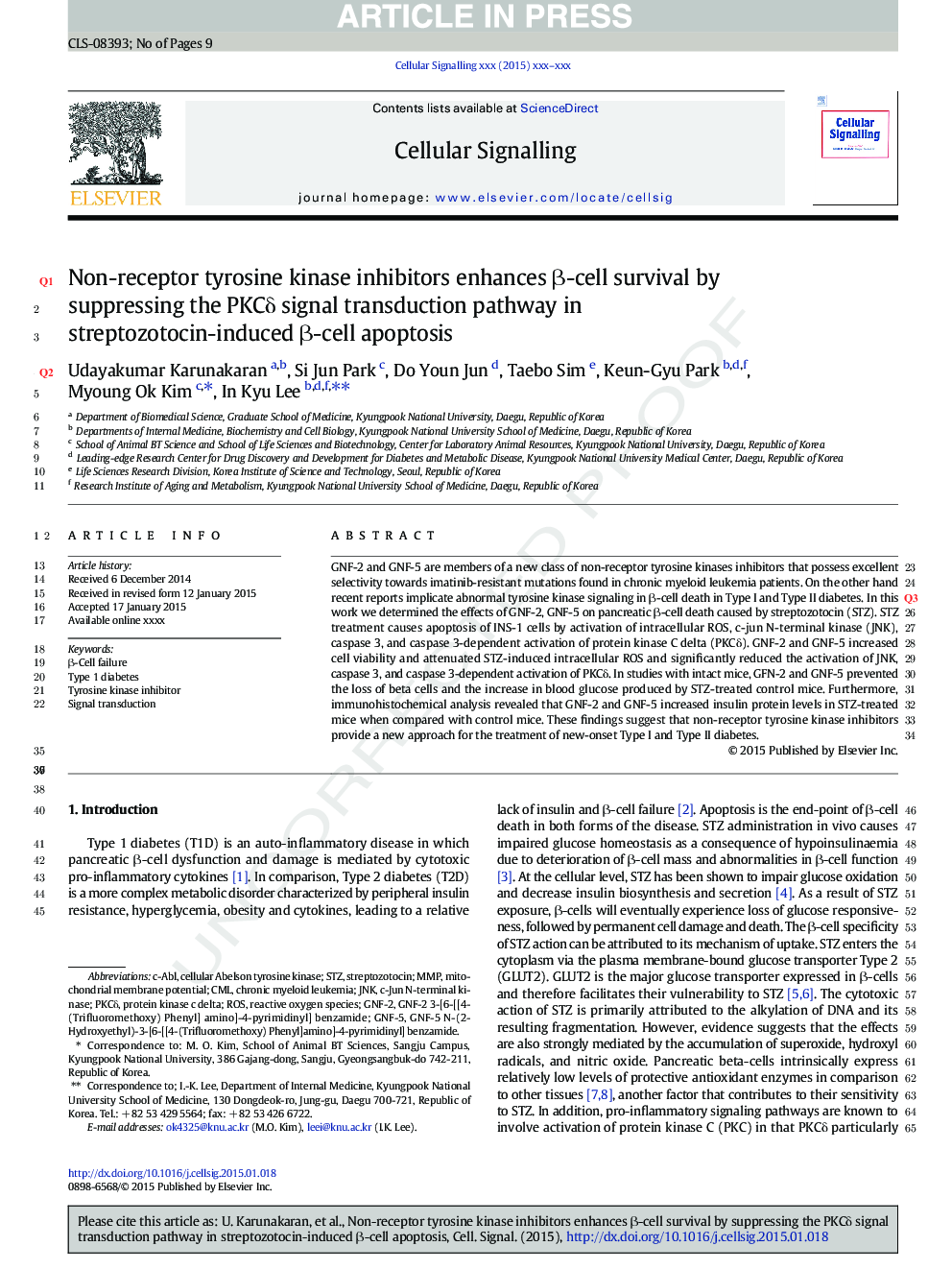| کد مقاله | کد نشریه | سال انتشار | مقاله انگلیسی | نسخه تمام متن |
|---|---|---|---|---|
| 10815047 | 1058444 | 2015 | 9 صفحه PDF | دانلود رایگان |
عنوان انگلیسی مقاله ISI
Non-receptor tyrosine kinase inhibitors enhances β-cell survival by suppressing the PKCδ signal transduction pathway in streptozotocin - induced β-cell apoptosis
دانلود مقاله + سفارش ترجمه
دانلود مقاله ISI انگلیسی
رایگان برای ایرانیان
کلمات کلیدی
MMPJnkβ-Cell failureCMLSTZPKCδc-Abl - c-ablc-Jun N-terminal kinase - C-Jun N-terminal kinaseROS - ROSstreptozotocin - استرپتوزوتوسینType 1 diabetes - دیابت نوع۱Chronic myeloid leukemia - لوسمی میلوئید مزمنTyrosine kinase inhibitor - مهار کننده تیروزین کینازSignal transduction - هدایت سیگنالMitochondrial membrane potential - پتانسیل غشای میتوکندریProtein Kinase C Delta - پروتئین کیناز C دلتاReactive oxygen species - گونههای فعال اکسیژن
موضوعات مرتبط
علوم زیستی و بیوفناوری
بیوشیمی، ژنتیک و زیست شناسی مولکولی
زیست شیمی
پیش نمایش صفحه اول مقاله

چکیده انگلیسی
GNF-2 and GNF-5 are members of a new class of non-receptor tyrosine kinases inhibitors that possess excellent selectivity towards imatinib-resistant mutations found in chronic myeloid leukemia patients. On the other hand recent reports implicate abnormal tyrosine kinase signaling in β-cell death in Type I and Type II diabetes. In this work we determined the effects of GNF-2, GNF-5 on pancreatic β-cell death caused by streptozotocin (STZ). STZ treatment causes apoptosis of INS-1 cells by activation of intracellular ROS, c-jun N-terminal kinase (JNK), caspase 3, and caspase 3-dependent activation of protein kinase C delta (PKCδ). GNF-2 and GNF-5 increased cell viability and attenuated STZ-induced intracellular ROS and significantly reduced the activation of JNK, caspase 3, and caspase 3-dependent activation of PKCδ. In studies with intact mice, GFN-2 and GNF-5 prevented the loss of beta cells and the increase in blood glucose produced by STZ-treated control mice. Furthermore, immunohistochemical analysis revealed that GNF-2 and GNF-5 increased insulin protein levels in STZ-treated mice when compared with control mice. These findings suggest that non-receptor tyrosine kinase inhibitors provide a new approach for the treatment of new-onset Type I and Type II diabetes.
ناشر
Database: Elsevier - ScienceDirect (ساینس دایرکت)
Journal: Cellular Signalling - Volume 27, Issue 6, June 2015, Pages 1066-1074
Journal: Cellular Signalling - Volume 27, Issue 6, June 2015, Pages 1066-1074
نویسندگان
Udayakumar Karunakaran, Si Jun Park, Do Youn Jun, Taebo Sim, Keun-Gyu Park, Myoung Ok Kim, In Kyu Lee,